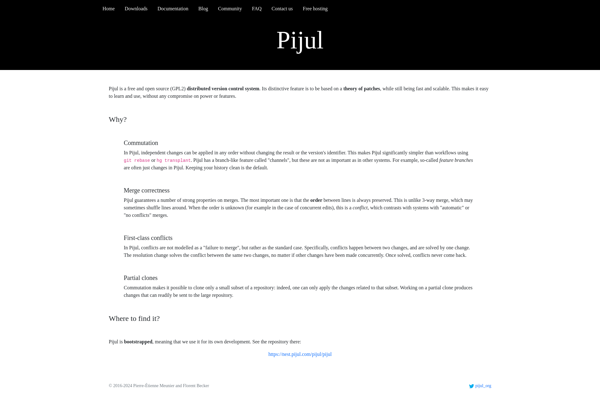Darcs
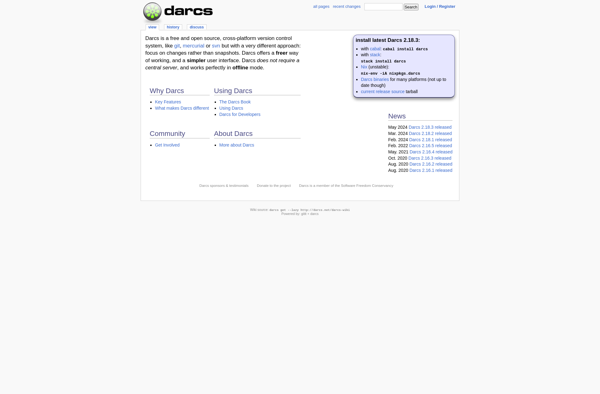
Darcs: Distributed Revision Control System
Darcs is a distributed revision control system designed for efficient handling of large projects. It has innovative features like patch commutation and tracking downwards history.
What is Darcs?
darcs is an advanced distributed revision control system that differs fundamentally from systems like Git and Mercurial in its underlying theory. While darcs shares common functionality with other version control tools like committing and branching/merging changes, it is built on a unique algebra of patches and provides innovative features like patch commutation and tracking downwards history.
Some key features and capabilities of darcs include:
- Distributed peer-to-peer architecture - every user has the full history stored locally
- Interactive record and unrecord for flexible commit/uncommit workflow
- Cherrypick and obliterate commands for modifying history
- Patch theory enables advanced conflict resolution by commuting or reordering patches
- Supports nested repositories for subprojects or dependency management
- Simplified branching, tagging, and merging model compared to directed acyclic graphs
- More meaningful and cleaner diffs thanks to tracking downward history
darcs is implemented purely in Haskell and emphasizes correctness, robustness, and speed in handling large projects across distributed teams of developers. Its unique patch theory and advanced features make it a popular choice for many open source projects.
Darcs Features
Features
- Distributed version control
- Supports offline working
- Efficient handling of large projects
- Patch theory based approach
- Interactive record and apply patches
- Supports cherry picking changes
- Built-in conflict resolution
Pricing
- Open Source
Pros
Cons
Official Links
Reviews & Ratings
Login to ReviewThe Best Darcs Alternatives
Top Development and Version Control Systems and other similar apps like Darcs
Microsoft Visual SourceSafe
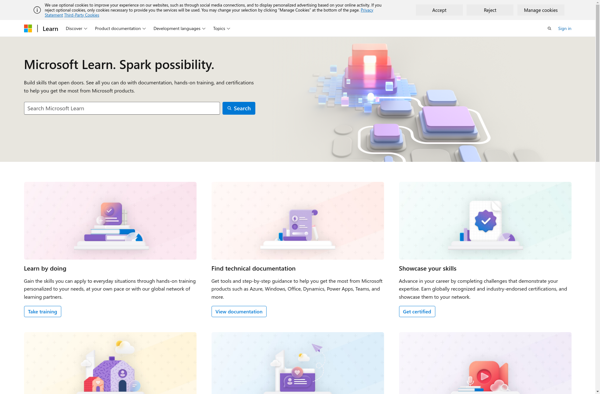
Mercurial SCM
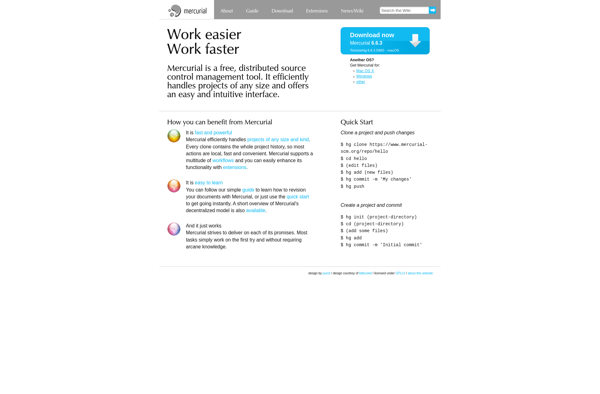
Perforce
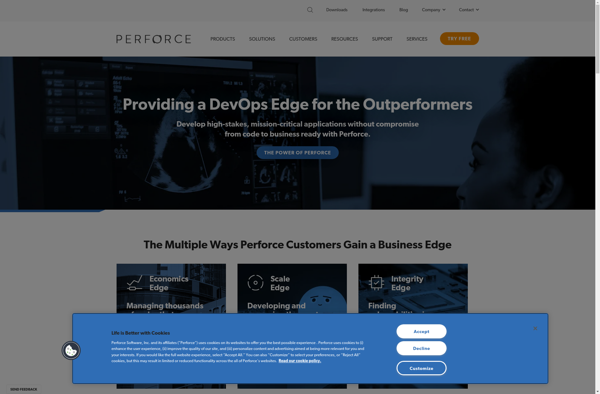
Apache Subversion
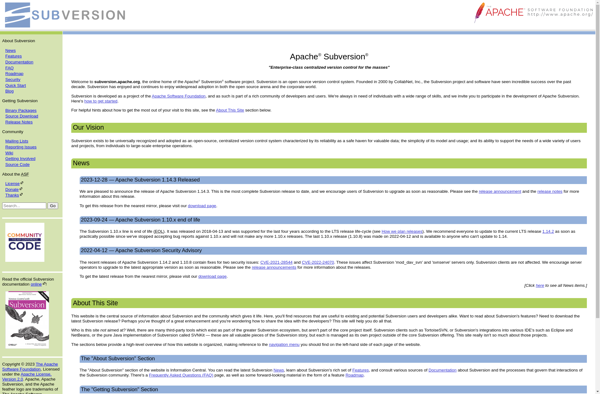
Fossil
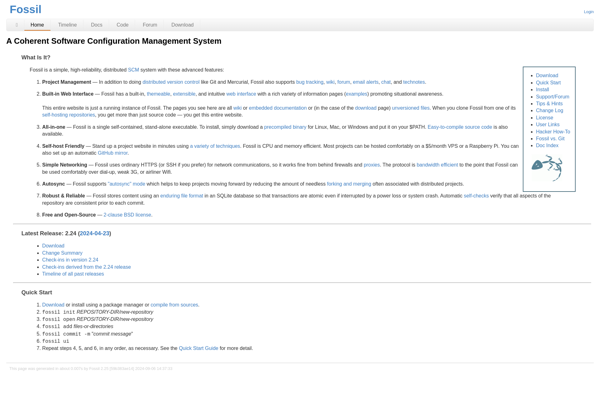
CVS (Concurrent Versions System)
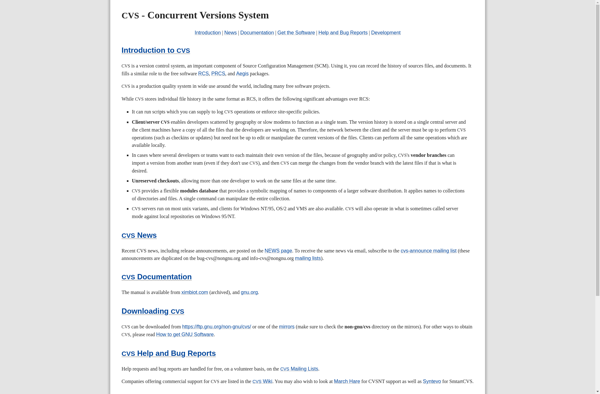
Plastic SCM
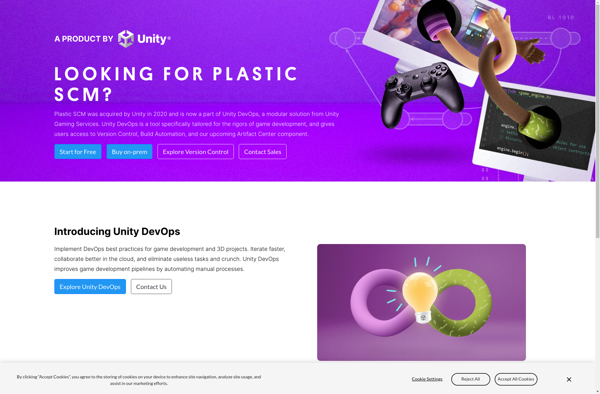
Veracity
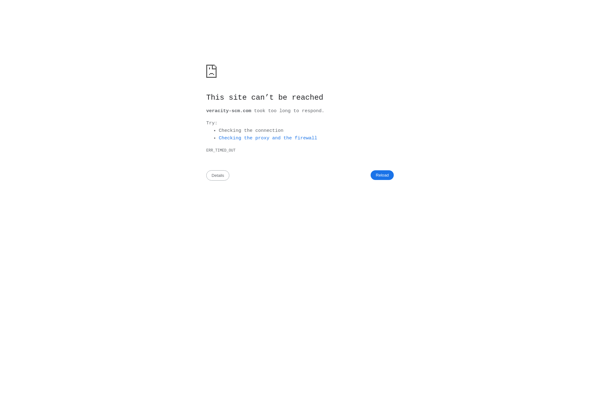
BitKeeper
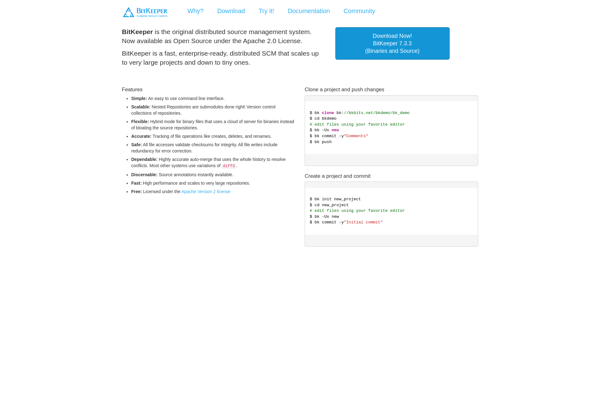
Git for Windows
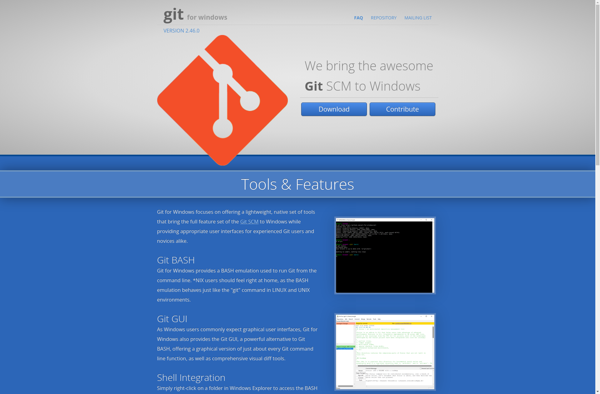
MKS Source

Accurev
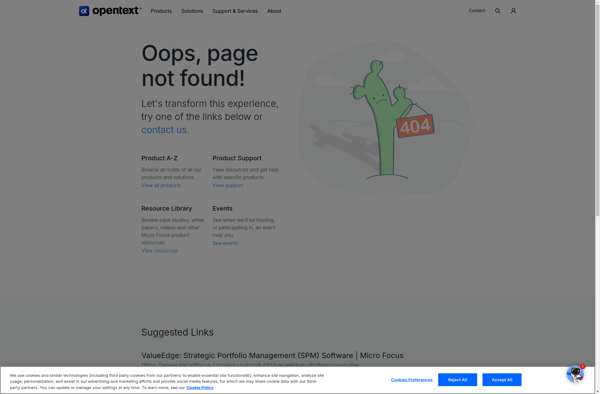
SpectrumSCM
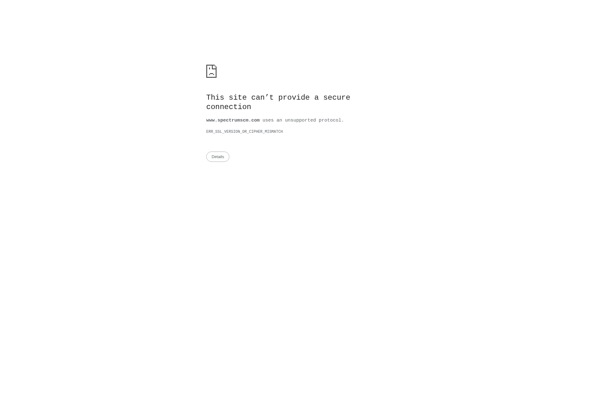
SourceAnywhere
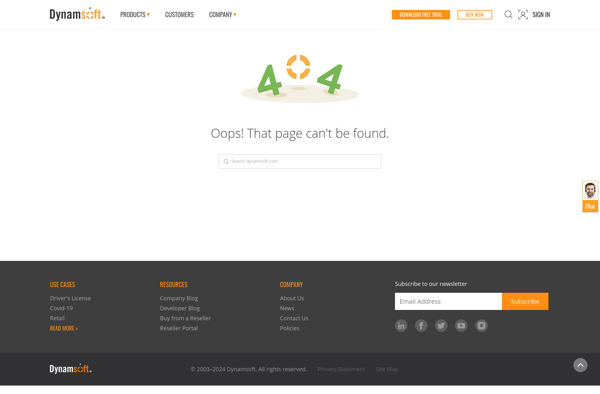
Monotone
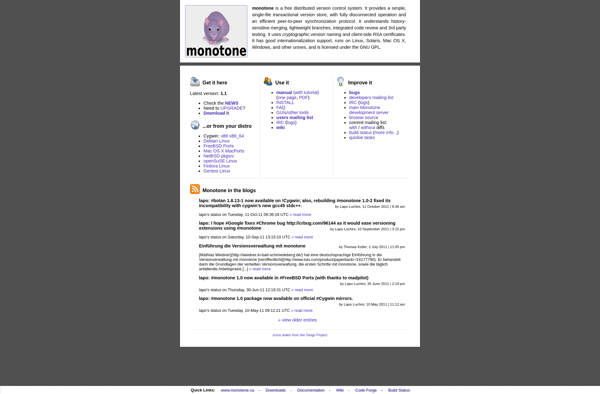
Surround SCM
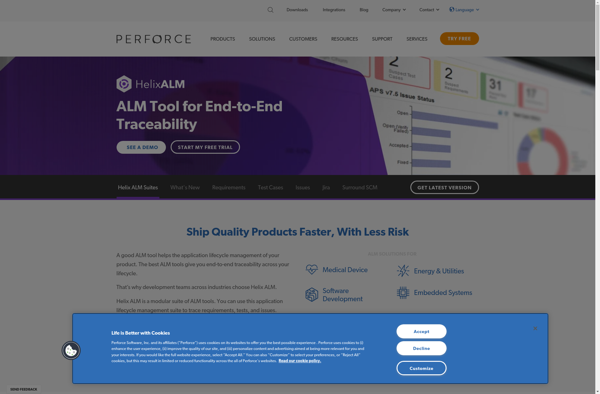
Pijul
